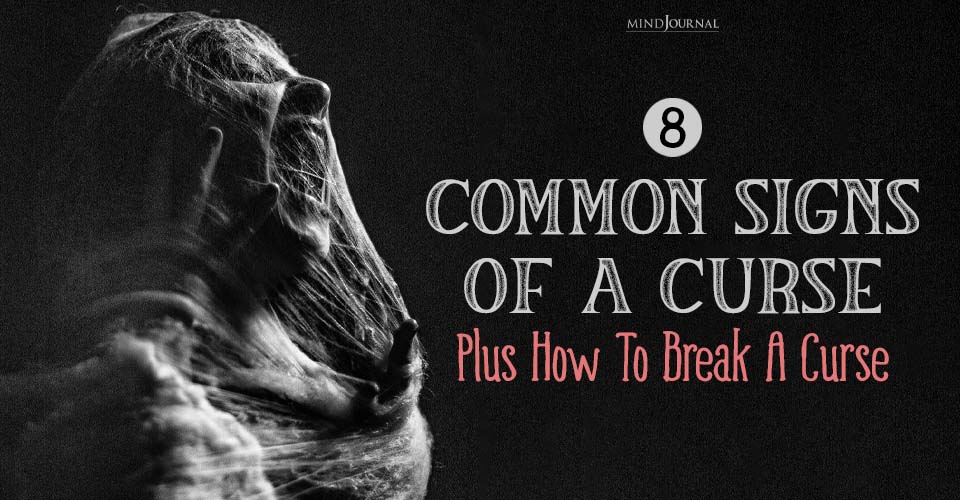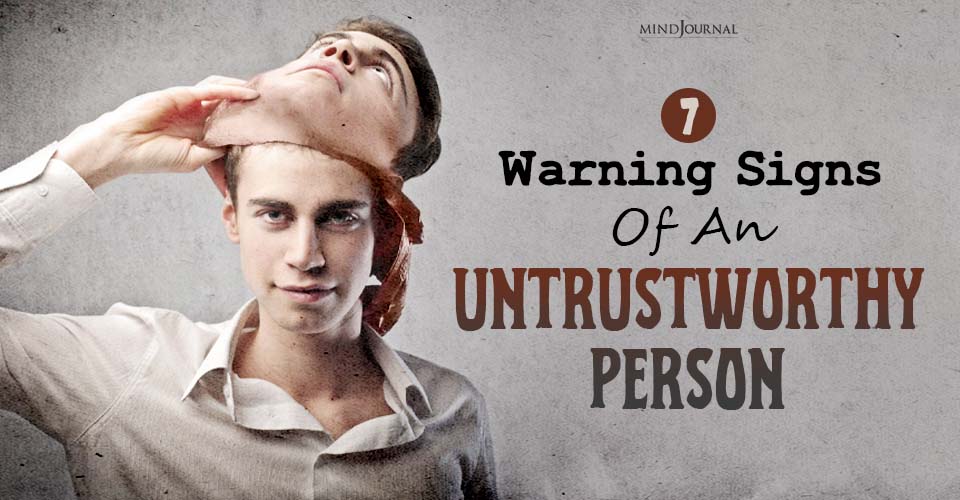Is your marriage going down the drain? Do you feel heartbroken, lost and confused, with no apparent way to make things better with your spouse? Well, you can still heal yourself and move on. Let’s explore how to get over a failed marriage.
A Union of Blessings or Pain?
Marriage is often considered a sacred bond between two individuals, filled with love, companionship, and dreams of a shared future. It is a union bestowed with blessings, often from a higher power.
However, not all marriages have a fairy-tale ending. When a marriage fails, it can leave behind a trail of heartache, confusion, and shattered dreams. But despite the pain, there is hope for a brighter future.
Many of us often find ourselves trapped in a failed marriage. However, through information and effort, getting over a failed marriage can become possible. Let us explore the story of Sarah who learned how to get over a failed marriage and navigated the challenging path of healing and moving on.
Related: What To Do When You Are Married But In Love With Someone Else
Sarah’s Story: A Journey of Healing and Transformation
Sarah had always believed in the power of love and marriage. She met Mark during their college years, and they quickly fell deeply in love. They shared dreams of a beautiful future together, full of love, companionship, and happiness. After years of dating, they decided to tie the knot and embark on their journey as husband and wife.
The early years of their marriage seemed idyllic. They were each other’s best friends and confidants, supporting one another through the ups and downs of life. However, as time went on, cracks began to appear in their relationship. Communication became strained, and they started drifting apart emotionally.
Sarah’s once vibrant spirit began to fade as she felt increasingly disconnected from Mark. Their dreams of a shared future started to crumble, and the marriage became a source of pain rather than joy. Arguments became more frequent, and their love seemed to be slipping away.
Caught in the whirlwind of failed expectations and unfulfilled promises, Sarah found herself questioning the very foundation of their marriage. She felt a profound sense of loss and betrayal, accompanied by anger, sadness, and confusion. The dreams that once gave her hope now seemed like distant memories.
Sarah felt like her life was over as her dreams seemed shattered. However, there was still hope. Hope for healing and building a better future for herself by getting over a failed marriage and stepping outside the shadows of her broken marriage. That’s when she learned how to get over a failed marriage.

Through tears and moments of despair, she confronted her pain head-on, understanding that healing required facing the truth of her failed marriage. Seeking solace, Sarah turned to her support system. She confided in her closest friends and family, who embraced her with love and understanding.
Sarah also recognized the significance of self-care and self-reflection in her healing journey. She prioritized her own well-being, engaging in deep introspection, and reflecting on her role in the failed marriage in moments of solitude. This self-reflection allowed her to break free from destructive patterns and make more informed choices for her future.
As Sarah gradually healed, she rediscovered her passions and set new goals for herself. Through her journey, Sarah discovered that a failed marriage is not a reflection of her worth or capabilities.
She understood that relationships can change and sometimes come to an end, and that doesn’t diminish her value as an individual. Sarah learned that healing from a failed marriage involves a deep understanding of oneself, forgiveness, and embracing new beginnings.
Sarah’s story exemplifies the psychological dynamics at play in a failed marriage. It highlights the emotional rollercoaster of grief, anger, and confusion that one experiences when a marriage falters. But Sarah’s journey also reminds us that healing and happiness are possible, even in the aftermath of heartbreak.
Read Horoscope Matching: The Man You’ll Marry (and Divorce), According To The Zodiac Signs
How to get over a failed marriage
Wondering how you can start getting over a failed marriage like Sarah? Here are a few helpful strategies that can help you get started on your healing journey –
1. Acknowledge and Accept Your Emotions
Sarah’s marriage had been crumbling for years, but she had always held onto the hope that things would change. When reality finally hit her, she was flooded with a mix of emotions – anger, sadness, betrayal, and even relief.
Instead of suppressing her feelings, Sarah allowed herself to acknowledge and accept them. She understood that it was essential to confront her emotions head-on to start the healing process.
To get over a failed marriage, it is crucial to allow yourself the time and space to grieve. Give yourself permission to feel the pain and sadness that comes with the loss of a significant relationship.
Cry if you need to, vent your frustrations, and express your emotions in healthy ways, such as through writing, talking to a trusted friend, or seeking therapy. Remember that healing takes time, and it’s okay to mourn the end of your marriage.
2. Seek Support from Loved Ones
Sarah realized that she couldn’t go through this journey alone. She reached out to her close friends and family, sharing her struggles and allowing them to provide the support she desperately needed.
Their love, empathy, and guidance helped her regain her strength and provided her with a sense of belonging during this challenging time.
When going through a failed marriage, surrounding yourself with a strong support system is vital. Reach out to your loved ones, friends, and family members who are understanding and non-judgmental.
Share your feelings, fears, and concerns with them. Allow them to provide a listening ear, a shoulder to lean on, and the encouragement you need to move forward. Remember, you don’t have to face this journey alone. This is how to get over a failed marriage.
Related: 5 Stages of Marriage And How Your Love Map Can Make It Stronger
3. Practice Self-Care and Self-Reflection
Sarah realized that she had neglected her own needs and desires during her marriage. She decided to prioritize self-care and self-reflection to rediscover her identity and rebuild her sense of self-worth.
She took up activities she enjoyed, pampered herself, and engaged in introspection to understand her own wants and needs. And that’s what you should do too. Make self-care a priority in your life.
Engage in activities that bring you joy and help you reconnect with yourself. This could be anything from pursuing a hobby, taking walks in nature, practicing mindfulness or meditation, or indulging in a spa day.
Taking care of your physical, emotional, and mental well-being will aid in the healing process and help you regain your sense of self.
4. Engage in Self-Reflection
Take the time to reflect on the failed marriage and your role in it. Ask yourself important questions about what you learned from the experience, what patterns you may need to break, and what you want for your future.
Journaling can be a helpful tool for self-reflection. By understanding yourself better, you can grow and make more informed choices moving forward.
5. Seek Professional Help
Sarah realized that she needed professional guidance to navigate the complexities of her emotions and the challenges she faced. She sought the help of a therapist who specializes in helping individuals recover from the trauma of a failed marriage.
Through therapy, Sarah gained valuable insights, learned healthy coping mechanisms, and began to rebuild her life. Professional help can be instrumental in healing from a failed marriage.
A therapist or counselor can provide a safe space for you to express your emotions, process the pain, and gain a fresh perspective. They can help you develop healthy coping strategies, rebuild your self-esteem, and navigate any unresolved issues from your past relationship.
Therapy offers guidance and support as you embark on your journey of healing. This is perhaps the best tip on how to get over a failed marriage.
6. Practice Forgiveness
Sarah carried a heavy burden of resentment towards her ex-spouse, which prevented her from moving forward. However, she realized that holding onto resentment only hindered her own healing process.
Sarah made the conscious decision to forgive her ex-spouse and herself, allowing herself to let go of the negative emotions that held her back.
Forgiveness is a powerful tool in the process of healing from a failed marriage. It doesn’t mean forgetting or condoning the actions that led to the marriage’s failure, but rather releasing the negative emotions that keep you trapped in the past.
Practice forgiveness towards your ex-spouse and yourself. Remember that forgiveness is a gift you give yourself, freeing you from the burden of resentment and allowing you to move forward with a lighter heart.
Related: Signs You’re in a Loveless Marriage (And How to Cope with It)
7. Let Go of Resentment
Resentment can be toxic and hinder your progress towards healing. Holding onto grudges and resenting your ex-spouse will only prolong your pain and prevent you from embracing new opportunities.
Letting go of resentment doesn’t mean you have to forget or reconcile with your ex-spouse, but rather choosing not to let bitterness consume your life. Focus your energy on building a brighter future rather than dwelling on the past.

8. Rediscover Your Passions
During her marriage, Sarah had put her dreams and passions on hold. Now, she saw an opportunity to reconnect with her authentic self and pursue the things that brought her joy.
She rediscovered her love for painting and set new goals for herself, which gave her a renewed sense of purpose and excitement for the future.
Take this time to explore your interests and rediscover the things that bring you joy. Engage in activities that ignite your passion and give you a sense of fulfillment.
Whether it’s painting, writing, dancing, or any other hobby you’ve always wanted to pursue, allow yourself the freedom to indulge in your passions. This will not only help you heal but also reconnect you with your authentic self.
9. Set New Goals
Setting new goals is an empowering way to move forward after a failed marriage. Take the opportunity to reassess your life and envision what you want to achieve. Set realistic and achievable goals that align with your values and desires.
It could be personal, professional, or even spiritual goals. Working towards these goals will give you a sense of purpose and direction, helping you build a fulfilling life beyond your failed marriage. This is This is how to get over a failed marriage.
Takeaway
Getting over a failed marriage is undoubtedly a challenging journey, but it is also an opportunity for growth, self-discovery, and a chance to create a brighter future. By acknowledging and accepting your emotions, seeking support from loved ones, practicing self-care and self-reflection, considering professional help, embracing forgiveness, and rediscovering your passions while setting new goals, you can gradually heal and find happiness again.
Remember, healing takes time, and everyone’s journey is unique. Be patient and kind to yourself throughout the process. Each step you take towards healing brings you closer to a life filled with love, joy, and fulfillment.
You have the strength within you to overcome this difficult chapter and create a beautiful new beginning.
Related: 5 Brutal Reasons Divorced People Threaten Married People: The Challenging Dynamics Revealed
Frequently Asked Questions (FAQs):
How long does it take to get over a failed marriage?
The time it takes to heal from a failed marriage varies greatly; there is no fixed duration for emotional recovery.
How do you walk out of a failed marriage?
Leaving a failed marriage involves legal steps, emotional support, and careful planning. Seek guidance from professionals and loved ones.
Why divorce hurts years later?
Divorce can leave lasting emotional scars due to unresolved feelings, changes in life circumstances, and shared memories that resurface.










Leave a Reply